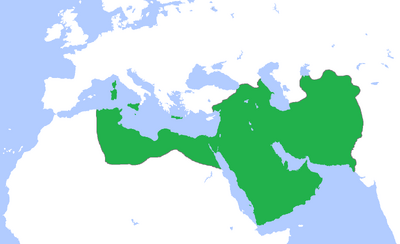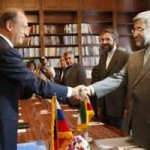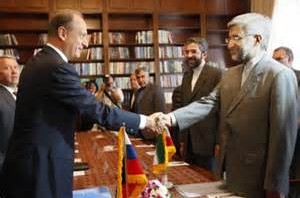There are some clues that are so visible we don’t see them but you can bet the real stories are well known by many. Secrets and dealings in New York and beyond are discussed over cocktails hosted by elites and circles within circles. Just examine New York and the globalists that in fact determine how to finesse regulations, sanctions, local law, international law and steal and smuggle creating wealth beyond the reach of media or any scrutiny.
Lax U.S. rules and real estate industry’s no-questions-asked approach make it easy for dodgy characters to funnel wealth through high-end Manhattan apartments.
One day during Chen Shui-bian’s second term as Taiwan’s president, several people lugged what a witness described as “five or six” fruit boxes into the presidential residence in Taipei. Inside the crates, the witness later said, was 200 million in New Taiwan Dollars, equal to about $6 million in U.S. currency.
The cash was a bribe intended for first lady Wu Shu-jen, a sweetener encouraging her to prod her husband to provide regulatory relief to a securities firm involved in a contested merger, according to court claims by U.S. and Taiwanese authorities. Pulling strings in such situations, the witness said, required getting “consent from Madam.”
Documents in U.S. District Court in Manhattan describe the circuitous path that authorities believe the cash followed after it was unpacked from the fruit boxes: First it was stored in a bank vault in Taipei along with other piles of loose cash that the first lady described as political donations . Later much of the cash in the vault was stuffed into seven suitcases and stored in a basement at the home of an executive involved in the corporate merger. After a time it was moved, in a roundabout way, through banks in Hong Kong and the U.S. and into a Swiss account controlled by the first couple’s son.
In the spring of 2008, a chunk of that money was wired into an account in Miami. U.S. authorities claim that on May 29, 2008 — nine days after Chen had completed his second and final term as Taiwan’s president — money from the Miami account was used to buy a prime piece of a real estate in yet another destination in the money’s global odyssey.
The property: a $1.575 million apartment in Manhattan’s Onyx Chelsea, a glass and metal tower “steps away,” as real estate promoters say, from Chelsea Park and Madison Square Garden.
The movement of dirty money from fruit boxes in Taipei into America’s real estate capital illustrates, in vivid detail, one of New York’s dirty secrets: High-end New York real estate is an alluring destination for corrupt politicians, tax dodgers and money launderers around the globe.
New York is among an elite group of destinations — along with Miami, London, Dubai and a few other cities around the world — that attract large numbers of international property buyers. Manhattan condos are popular with wealthy Chinese, Russians and South Americans. Since 2008, roughly 30 percent of condo sales in pricey Manhattan developments have been to buyers who listed an international address or bought in the name of a limited liability company or some other corporate entity, a maneuver often employed by foreign purchasers.
Because many buyers go to great lengths to hide their interests in New York properties, it’s impossible to put a number on what proportion of buyers from overseas are laundering ill-gotten gains. Many act in an above-board manner and use tax loopholes that are legal in their home countries. But it’s clear that New York’s public officials and its real estate industry embrace the wealthy and powerful without much thought to where their money comes from.
During his time in office, former Mayor Michael Bloomberg was a cheerleader for encouraging the mega-wealthy to relocate to the city. “Wouldn’t it be great if we could get all the Russian billionaires to move here?” he told New York magazine in September.
Combine that give-us-your-rich ethos with state and local policies that lavish tax breaks on Manhattan’s wealthiest homeowners and federal policies that allow real estate agents to close their eyes to whether their clients are trafficking in illicit money, and the results are predictable: New York is a magnet for the super-rich homebuyers from other lands bearing money of sometimes dubious provenance. The flood of foreign capital pouring into New York properties makes it easy for suspect figures to hide their fortunes amid Manhattan’s residential gold rush, according to interviews with money laundering experts and court documents and secret offshore records reviewed by the International Consortium of Investigative Journalists.
Jaikumar Ramaswamy, chief of the U.S. Justice Department’s anti-money-laundering section, says oligarchs and despots like to put their money into high-end real estate for a number of reasons: they need an escape option if things take a turn for them in their home countries, they want to park their assets in an investment that’s known to preserve value, and they want to be able to enjoy and flaunt their wealth. “They’re not buying real estate in Detroit,” he says. “They’re buying in places that give them some sort of status: London, Paris, New York, Malibu.”
Many walk a fine line between showing off and staying on the down low. Instead of putting property in their own names, they may arrange to put the names of their spouses, children, lawyers or other proxies on property deeds. Often, the buyer of record isn’t even a flesh-and-blood person — it’s an anonymous limited liability company set up in a U.S. state, or an offshore company established in the British Virgin Islands or some other overseas haven.
The offshore maze
The story of the Manhattan apartment purchased by Taiwan’s former first family illustrates how offshore structures are used to steer ill-gotten gains into real estate. Along with passing through a tangle of bank accounts, the bribe money’s origins and the identities of the people associated with it were obscured by the use of offshore entities, including a trust registered on the Island of Nevis and shell companies in the British Virgin Islands.
As a final step, a Miami-based wealth advisor, a German national named Stefan R. Seuss, set up a New York company, West 28th Street LLC, that stood in as the Chelsea condo’s owner of record. Any check of the LLC’s ownership would have traced back to one of the British Virgin Islands companies and hit a dead end.
Financial crime experts have a name for the process of creating mazes of bank accounts and offshore companies to move and hide money: layering. When the layers are laid down skillfully, it’s often impossible for authorities to detect flows of illicit cash. The United Nations Office on Drugs and Crime estimates that as little as one-fifth of 1 percent of money that’s laundered around the world is identified and intercepted.
In the case of Taiwan’s former first couple, though, an amateurish blunder in the laundering process – having the corporate executive store the cash in his basement – may have helped unravel the scheme. The executive later provided evidence against the ex-president and first lady, who were eventually sentenced to lengthy prison terms on an array of corruption charges.
Court records indicate that Seuss, the wealth advisor, also betrayed the presidential family’s secrets — acknowledging that the first couple’s son and daughter-in-law had asked him to help them buy real estate in New York and Virginia but conceal their ownership of the properties. It appears Seuss provided this inside information to the government sometime after he was indicted in 2009 in Philadelphia on unrelated money laundering charges. He later pleaded guilty, paid a fine and served a short stint in jail.
Despite evidence marshaled by authorities in Taiwan and the U.S., American prosecutors had to battle for nearly 2½ years to seize the Chelsea condo as the proceeds of foreign corruption. An attorney representing the first couple’s son denied the family had done anything wrong and charged that the U.S. Justice Department’s forfeiture action was an effort to “curry favor with the current government of Taiwan.”
In April 2013 the condo was auctioned for $1.5 million. As part of a settlement of the litigation, $225,000 of that went to the offshore company that controls West 28th Street LLC. The rest sits in the U.S. Treasury, apparently waiting for a decision on Taiwan’s request that the U.S. share a portion of its take from the sale.
Ramaswamy, the Justice Department official, says seizing real estate under such circumstances is often difficult. Authorities can’t just show that the owner of the property is corrupt. “You have to prove the nexus between the corruption and the property itself,” he said. “Sometimes judges are skeptical: Why are we are going after some foreign guy who did something in a foreign country?”
Easy access
Other than the occasional after-the-fact legal action — often sparked by investigations in other countries — U.S. authorities don’t put up many roadblocks for foreigners who want to launder money through American real estate. Escrow and real estate agents aren’t required to find out the real identities of property buyers and, unlike bankers, stockbrokers and other financial middlemen, they aren’t required to report suspicious transactions to law enforcement.
The Patriot Act, passed after the 9/11 attacks, requires that banks, securities houses and other financial firms follow stringent anti-money-laundering rules. Real estate and escrow agents were included on the list, but a loophole in the law gave an opening for the U.S. Treasury to “temporarily” exempt the real estate industry from these requirements.
A dozen years later, the exemption still stands.
Investigations led by U.S. Sen. Carl Levin, a Michigan Democrat, have highlighted the role of real estate agents in helping corrupt foreign officials and their families move looted cash into the U.S. Levin has called for Treasury to revoke the Patriot Act exemptions “so that real estate and escrow agents will have to know their customers, evaluate the source of their funds, and turn away suspect clients.”
Louise I. Shelley, director of the Terrorism, Transnational Crime and Corruption Center at Virginia’s George Mason University, believes that money laundering into real estate has increased since 9/11 as scrutiny of other kinds of transactions has increased.
The use of real estate as a haven for dirty money, she says, is “terribly overlooked” by researchers, politicians and regulators. “I’ve even written people in Treasury who have asked me about this, and they haven’t gotten back to me,” Shelley says. “It’s a big hole.”
A-list destination
The lax standards for real estate transactions in the U.S. — money talks, few questions asked — sometimes mean that Manhattan’s financial and cultural elite end up with mysterious figures as their neighbors.
In early 2008, a British Virgin Islands company, Jolly Star Holding Limited, paid more than $15 million to buy an apartment and maid’s quarters in Fifteen Central Park West, an A-list address whose residents have included Sting, Denzel Washington, former Citibank chief Sanford Weill and baseball superstar Alex Rodriguez.
Who was really behind the purchase was hidden behind the cover of British Virgin Islands law, which closely guards the identities of the shareholders of companies chartered there.
The owners of Jolly Star Holding — and thus the owners of Apartment 14B at 15CPW — would have remained a secret if not for confidential records obtained by the International Consortium of Investigative Journalists. These documents show Jolly Star Holding’s owners were a Hong Kong power couple, Sun Min and her husband Peter Mok Fung. The couple runs a shipping and trading company and are known to buy and sell shares on the Hong Kong Stock Exchange in batches of $10 million or more.
A few months after they purchased the Manhattan condo, the couple made another big investment, buying more than 8 million shares in Huiyuan, a Chinese juice company. After it was announced in September 2008 that Coca-Cola wanted to buy Huiyuan, the juice maker’s stock value soared and Min began selling off the couple’s shares. The Coke deal eventually fell through, but not before Min and her husband had reaped millions of dollars in profit, Hong Kong authorities later charged.
Regulators claim that the windfall wasn’t the result of luck or acumen, but rather due to illegal information obtained by Min before Coke’s interest in Huiyuan was made public. In 2013 Hong Kong’s Market Misconduct Tribunal found Min guilty of insider trading, fining her more than $3 million, the largest penalty ever laid down by the tribunal.
Fact of life
Money laundering and New York real estate have a long history.
For much of the 20th century, Mafia clans put money squeezed from gambling and other rackets into properties around New York’s Five Boroughs — often low-end, low-profile addresses rather than high-end ones.
“You didn’t have any large-scale real interests in New York without coming in touch with this problem,” says Shelley, the corruption expert. “It was just a fact of life.”
Her father owned apartment buildings all over Manhattan from the 1940s into the 1960s. The stories she heard from him about the underworld’s influence in the market — it turned out, for example, that a real estate operator he shared an office with was connected to the mob — helped inspire her to devote herself to studying organized crime.
One of the most famous scandals involving money laundering through New York real estate starred a seven-bedroom condo on the 43rd floor of Midtown’s famed Olympic Tower and the former first couple of the Philippines, Ferdinand and Imelda Marcos. In 1976, the couple used a series of offshore companies, investigators later charged, to quietly channel almost $700,000 into the purchase and consolidation of three apartments near the top of the tower, which had recently been built by Greek-Argentine shipping magnate Aristotle Onassis.
Investigators claimed that the front man for the purchase was a Marcos ally, Antonio Floirendo, known as the “Banana King” for his vast plantations in the southern Philippines. After the Marcoses fled to Hawaii in 1986, the Philippines’ newly formed Presidential Commission on Good Government moved to seize the Manhattan showplace as part of its push to recover billions of dollars it claimed the couple looted from the country. The Philippines government sold the condo for just under $3.7 million. It also auctioned off the apartment’s contents — including a Fantin-Latour painting that went for $400,000 — at Christie’s. Proceeds from the condo and furnishings, Philippine officials promised, would be used to help bankroll the country’s agrarian land reform.
Position of privilege
A few years later, money traced to another suspect Philippine official also ended up in a luxury property in New York.
The paper trail began to emerge in December 2003 , after customs officers at San Francisco International Airport detained two sons of a powerful Philippine army general and accused them of trying to smuggle $100,000 into the U.S.
Their mother got involved by submitting a handwritten affidavit in which she frankly explained that the position held by her husband, Maj. General Carlos Garcia, “is one of privilege,” allowing him to benefit from “gifts and gratitude money from several Philippine companies that are awarded military contracts to build roads, bridges and military housing.” (Clarita Garcia also noted, in another odd aside, that the Philippine military provided her five drivers and five vehicles and a cook who played the piano for her “upon request.”)
The sons’ arrest and the mother’s statement to U.S. officials helped spark an investigation back in the Philippines that turned up evidence her husband had acquired as much as $6 million in undeclared income. He was court martialed, convicted of perjury and sent to prison.
Among the assets that U.S. authorities went after in the wake of the investigation was a condo at New York’s Trump Park Avenue tower. Clarita Garcia and a third son, Timothy, purchased Unit 6A in the luxury building for $765,000 in 2004. U.S. prosecutors said the money, funneled through a joint account held by mother and son at Citibank , had been amassed through the general’s corrupt activities.
In 2009, as the forfeiture claim and extradition cases against Clarita Garcia and her three sons dragged on, Timothy Garcia was working as a publicist for Marc Jacobs’ fashion empire, getting photographed at Fashion Week wearing an electronic monitoring device and complaining that the court-ordered ankle bracelet was so uncomfortable, “I can’t even wear my knee high croc boots by Sergio Rossi for the fall.”
In late 2012, federal prosecutors in Manhattan won a court order turning over control of the Trump Park Avenue unit to the U.S. Department of Homeland Security.
Island of intrigue
Manhattan real estate has a knack for turning up amid intrigues involving some of the most politically explosive regions in the world. In September, a judge approved U.S. prosecutors’ bid to seize 650 Fifth Avenue, a commercial tower at edge of Rockefeller Center, ruling the property’s owners had violated international embargoes by secretly siphoning profits from tenants’ rental checks to Iran’s government. U.S. authorities said it could be “the largest-ever terrorism-related forfeiture.”
Federal prosecutors in Manhattan have charged that some of the money stolen from Russia’s treasury as part of an alleged $230 million tax fraud known as the Magnitsky affair was used to buy luxury apartments at 20 Pine Street, a 35-story building just off Wall Street that had once been home to the J.P. Morgan banking empire. Prosecutors claim the money to buy the New York properties was routed through more than 20 banks and companies on its path from Russia to New York, including a brief stopover in Moldova, Europe’s poorest country. Authorities are trying to seize four apartments at 20 Pine as well as two commercial spaces that they claim were purchased with tainted cash. Lawyers for a British Virgin Islands company and related U.S. firms that are the owners of record of the properties claim there’s no evidence that the firms or their managers were involved in a Russian tax fraud.
Allies of both the winner and the loser in Ukraine’s 2010 presidential election, meanwhile, have been accused of money-laundering schemes involving New York properties. A lawsuit in federal court in Manhattan claims that illicit cash gathered by that election’s loser, former Prime Minister Yulia Tymoshenko, was invested by her business associates in an array of New York properties. The suit alleges that a former assistant finance minister in Russia plowed part of a $10 million bribe he received from Tymoshenko into real estate in the city. Another associate, the suit alleges, used money spun off from Tymoshenko’s “corrupt schemes” to buy 14 Wall Street, an office tower across from the New York Stock Exchange.
Tymoshenko denies wrongdoing, and asserts that the corruption investigation that landed her in jail after the 2010 election was politically tainted. She in turn has accused a key contributor to Viktor Yanukovych, the 2010 election’s winner, of engaging in money laundering via New York real estate. In a lawsuit in federal court in Manhattan, she claims that one of Yanukovych’s political patrons, billionaire businessman Dmytro Firtash, moved money through American banks by pretending he was using it to invest in New York real estate projects. After the cash had been “sufficiently laundered,” the suit alleges, Firtash and other defendants sent much of it back to Ukraine to bankroll “political corruption and other racketeering activities.”
Firtash was arrested in March in Austria, at the request of U.S. authorities, on suspicion of bribery and organized crime activities.
Family trust
Other notorious figures in Eastern Europe and the former Soviet Union whose names have been linked to pricey Manhattan properties include a famed Romanian shopping-mall developer and Russia’s fertilizer king.
Gabriel Popoviciu became one of Romania’s richest men by helping introduce his country to KFC and other American fast-food icons. Research by a European news organization, the Organized Crime and Corruption Reporting Project, has revealed that his family has shelled out more than $8 million over the past decade to buy three apartments on the 44th floor of the Olympic Tower, one flight up from where Ferdinand and Imelda Marcos once held luxury space. He and his wife bought an apartment from American banker John Chalsty in 2004. The couple’s daughter was listed as the buyer of nearby apartments in 2006 and 2012. The last one was bought from Christie’s for $3.6 million.
Recently, though, Garbriel Popoviciu removed his name from the family holdings in the Olympic Tower. This move came amid two unfolding life events for him — a divorce from his long-time spouse and a criminal investigation of his business dealings in Romania. Prosecutors allege he and his associates bribed government officials as part of the behind-the-scenes machinations that allowed him to gain control of valuable state-owned land and develop a huge project that includes supermarkets, restaurants and the U.S. Embassy. Popoviciu denies wrongdoing.
Authorities have frozen Popoviciu’s assets in Romania, but have put no restrictions on his property outside the country. In March, Popoviciu sold his newly ex-wife his half-share of the apartment they purchased in 2004. The sale price: zero dollars.
A trust created from the fortune of Russian fertilizer magnate Dmitry Rybolovlev made an even bigger splash in New York real estate. It paid $88 million in February 2012 to buy a 10-room penthouse at 15 Central Park West from the wife of the former Citigroup chair Sandy Weill. The trust was set up to benefit Rybolovlev’s oldest daughter, Ekaterina, as part of a “succession planning” program, his lawyer says. The Telegraph, a U.K. newspaper that closely follows the activities of Russian billionaires, reported that Ekaterina — “a Monaco resident and keen horsewoman” — was expected to use the penthouse “during trips to New York when she takes a course this autumn at Harvard.”
Rybolovlev’s estranged wife, Elena, claims that her husband was the real buyer of the property. She charges in a lawsuit in New York that the trust is a “sham entity” and the purchase of the penthouse is part of a scheme to hide his assets amid their divorce battle.
“It’s a joke to claim that he spent $88 million on such a huge apartment so that his daughter can supposedly use it on occasional visits to the city when she is not even studying here,” her New York attorney, David Newman, told The Telegraph. “You could fit her whole class in there. Imagine the student parties.”
Influence
The massive flow of foreign money — licit and illicit — into New York real estate helps deprive the buyers’ home countries of wealth and tax revenues. Housing advocates say it also helps inflate property values, pricing average New Yorkers out of buying or renting and helping increase the city’s huge homeless population.
Critics say tax and development policies have been skewed to favor the rich because New York’s real estate interests are skilled at wielding clout. “It’s like the oil industry in Texas,” Jaron Benjamin, executive director of New York’s Metropolitan Council on Housing, says. “They have so much power and so much money. They’re going to make sure they have the best lobbyists at the state Capitol and City Hall, pulling our elected officials one way or the other.”
Last August the New York Daily News reported that a state anti-corruption commission had subpoenaed New York developers to determine how they won tax breaks for luxury projects through language “mysteriously placed” in state legislation. Four developers benefiting from the bill contributed $1.5 million to state politicians in recent years, the paper said.
In interviews with New York magazine, some real estate operatives acknowledged that money laundering was a serious issue when it comes to international buyers of properties in the city. Several added, though, that they try to screen out bad actors in the process. “Like somebody said, Karl Marx or whatever, if the capitalist is going to see a triple return, he’s going to close his eyes,” Mark Reznik, a real estate broker at a firm that often deals with Russian clients, told the magazine. “But we are trying not to deal with scumbags.”
Shelley, one of the few academics who’s studied real estate-based money laundering, says many real estate operatives don’t check or don’t care about whether the cash sustaining big deals is clean or dirty.
In recent years, many of the world’s biggest banks have paid huge settlements with the U.S. government to settle claims that they helped rich clients hide their money. In May Credit Suisse agreed to pay $2.6 billion to settle criminal charges that it used secret accounts and shell companies to help Americans evade taxes. Shelley believes that the real estate industry should be forced to follow the same standards as other big financial players.
“Nobody has been holding the real estate industry accountable to the extent that other sectors of the economy are being held accountable,” she said. “I think we need congressional hearings on this issue, and greater resources for law enforcement to deal with this problem.”
The story is part of a joint investigation by the International Consortium of Investigative Journalists, New York magazine and the Organized Crime and Corruption Reporting Project.
Contributors to this story: Andrew Rice, Margot Williams, Mar Cabra, Titus Plattner and Pavla Holcova







